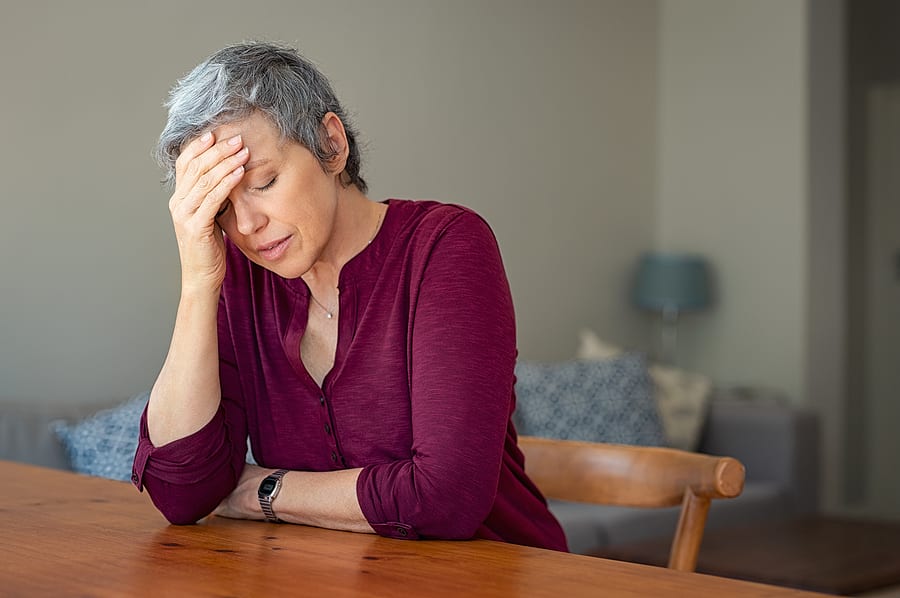When spending time with your elderly loved one, you may notice that they are stressed out. Especially in uncertain times, such as a pandemic, stress can be a prominent part of everyday life. Stress can be hard to deal with at any age, but it can cause further health issues, or exacerbate existing ones. This article will look at what stress is, its effects on the body, and ways to help reduce stress in your elderly loved one.
What is Stress?
Stress is a physical, mental, and emotional reaction of the body towards stressful or traumatic factors. Many different factors can cause it, but common causes are often related to finances, security, big life changes, worrying, chronic sickness, or traumatic events. For the elderly, some more specific stressors may include healthcare costs, loss of independence, loss of mobility or energy, loneliness/isolation, and retiring. While retiring can help reduce stress, it can also lower an elderly person’s sense of purpose, which in turn can be stressful.
Signs of Stress
Stress manifests itself in a variety of ways, and it can differ from person to person. Common signs include headaches, mood changes, weight gain/loss, depression, skin problems, fatigue, difficulty sleeping, and more. Additionally, stress can affect the body’s natural functions and can reduce one’s overall health.
Lowered Immune System
Stress is known to suppress the immune system. Changes to your sleep cycle due to it, along with other factors, can lower the body’s ability to fight off disease. As you age, your immune system can become weaker. Age-related immune system suppression combined with stressful situations can lead to your loved one becoming sick more often.
Heart Issues
Stress can often trigger the body’s “flight or fight” response, which can release adrenaline. Adrenaline raises your blood pressure and heart rate, which can increase the risk of serious heart issues; especially in the elderly. Damage to arteries, blood vessels, and the heart can become more likely.
Digestion Problems
Stress can affect your metabolism, and create problems with your digestion. This can lead to constipation, malnourishment, or stomach aches. Chronic stress can lead to more severe issues, such as IBS or ulcers. Overeating or loss of appetite can also be a part of stress. Combined with changes to the metabolism, this can drastically affect your loved one’s weight and overall health.
Reducing Stress
Many people equate reducing stress with increasing fun or free time. But, this can be difficult for elders, who often have more free time. Focusing your loved one’s energy on more positive activities can be a good way to reduce stress, and help them feel healthier overall. Taking walks, and spending time outdoors is a good place to start. Light exercises, such as yoga or tai chi, can help get the blood flowing and improve mood. Volunteering or donating to a cause can help your loved one find a sense of purpose once more. Reducing isolation can include hiring a home healthcare professional to be there when you can’t.
Home Health Aides
Home Health Aides can offer companionship while making your loved one’s life at home easier. Your loved one’s aide can help ensure that your loved one is eating right and reducing their stressors. Companionship from your loved one’s aide can help them feel less isolated.
Safe Harbor Healthcare Services does not provide medical or healthcare advice via articles. This material has been prepared for informational purposes only, and is not intended to provide, and should not be relied on for medical advice.
Safe Harbor Healthcare Services has been providing excellent home care on Staten Island since 1967. Our services help the elderly and disabled live safely and independently; while giving their families the peace of mind they need. For more information, contact Safe Harbor by clicking here, or call us at (718)-979-6900.

